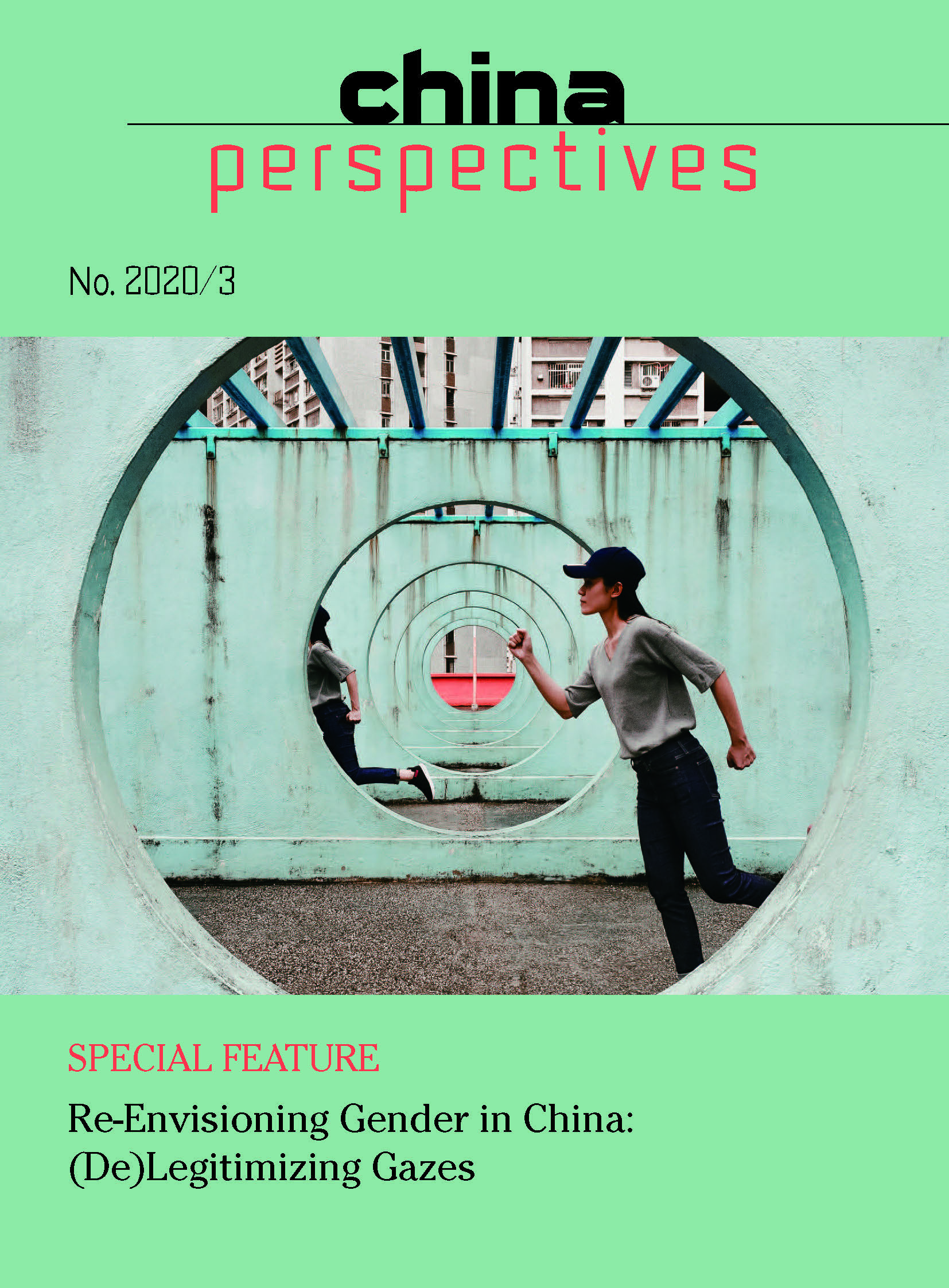
China Perspectives 2020/3
SPECIAL FEATURE
Re-Envisioning Gender in China: (De)Legitimizing Gazes
- Special Feature
- Article
- Book Reviews
VEG, Sebastian (ed.). 2019. Popular Memories of the Mao Era: From Critical Debate to Reassessing History. Hong Kong: Hong Kong University Press.
HO, Ming-sho. 2019. Challenging Beijing’s Mandate of Heaven: Taiwan’s Sunflower Movement and Hong Kong’s Umbrella Movement. Philadelphia: Temple University Press.
KENDALL, Paul. 2019. The Sounds of Social Space: Branding, Built Environment, and Leisure in Urban China. Honolulu: University of Hawai’i Press.
GROSE, Timothy. 2019. Negotiating Inseparability in China. The Xinjiang Class and the Dynamics of Uyghur Identity. Hong Kong: Hong Kong University Press.
Poverty Alleviation in China: The Rise of State-Sponsored Corporate Paternalism
ABSTRACT: Since taking office, president Xi Jinping’s government has granted massive funding to what has become China’s strongest poverty-reduction campaign ever. Based on the study of detailed budgets in eight rural counties, as well as ethnographic and interview data in a ninth county, this article explores how poverty alleviation programs shape the distribution of power and resources in rural China. It argues that poverty alleviation in rural China predominately focuses on infrastructure investment and support to the local economy, rather than on social insurance, education, and household subsidies. Support to local companies, the article argues, entails co-opting established enterprises, rather than supporting new entrepreneurship among poor households. Overall, the Chinese approach to rural poverty alleviation highlights the emergence of a state-sponsored corporate paternalism that strengthens local hierarchies of wealth and power.
KEYWORDS: Poverty alleviation, paternalism, public welfare, rural China.
Visual Encounters in Global Shanghai. On the Desirability of Bodies in a Coworking Space
ABSTRACT: The rise of Shanghai as a global city prompts the question: to whom does it belong? This article addresses the issue by examining the desirability of bodies in one of the city’s cosmopolitan spaces: a coworking space patronised by an international clientele. Drawing on an analysis of visual encounters in both physical and virtual spaces, it shows that the logic of belonging in the coworking community is based on the distinction between two kinds of bodies: the desirable one of the transnational professional and the undesirable one of the rural-urban migrant worker. While the latter is reduced to its working function, the former appears as a body complete with desires, whose interactions with others blur the separation of the professional and the intimate in line with the new spirit of capitalism. This visual ethnography provides insights on how economic changes reshape Shanghai’s urban life not only by reproducing local patterns of social exclusion, but also by encouraging racialised desires suited to capitalist accumulation on a global scale.
KEYWORDS: Coworking space, community, bodies, visual encounters, new spirit of capitalism, global city, Shanghai.
The Road Home: Rebellion, the Market and Masculinity in the Han Han Phenomenon
ABSTRACT: Han Han has attracted a significant amount of popular and scholarly attention since he rose to fame in 1999. While the majority of commentators have concentrated on his ambiguous position as rebel-meets-entrepreneur, this article considers the way in which masculinity is performed and constructed in the Han Han phenomenon. It discusses Han Han’s commercial appearances before turning to his debut film The Continent (2014). The article points to the recurring figure of the adventurous mobile man, demonstrating that this celebration of masculinity on the move is the result of global cultural influences, local traditions of manhood, and new market forces. Founded as it is on a conservative understanding of gender and mobility, Han Han’s performance and construction of masculinity cuts into his reputation as a “deviant genius,” demonstrating further ways in which his cultural rebellion is limited. In particular, this article highlights the ways in which his masculinity is constructed at the expense of women and non-hegemonic men.
KEYWORDS: Masculinity, mobility, Han Han, road movies, rebellion, celebrity, postsocialist cinema.
Knowing Male Subjects: Globally Mobile Chinese Professionals and the Aesthetics of the Confucian Sublime
ABSTRACT: This article probes the sources, manifestations, and significances of the ambivalences and contradictions in London-based Chinese middle-class male professionals’ sense of their own gendered and cultural identities in the context of China’s twenty-first century postsocialist modernity. In doing so, it shows how Chinese middle-class men’s sense of themselves connects with wider national debates about China’s orientation in the world. To make sense of the desire of some respondents “to become a Chinese gentleman,” the article introduces the notion of the postsocialist Confucian sublime, a vision of a cultural order of increasing appeal to well-educated, middle-class Chinese men. The article argues that the Confucian sublime offers globally mobile professional Chinese men the opportunity to transcend their ambivalence towards Western modernity by providing a sense of wholeness and attainment both at a personal level and in relating to China’s place in contemporary globality.
KEYWORDS: Chinese, professionals, middle class, men, masculinities, ambivalence, postsocialist modernity, Confucian sublime.
What is Obscenity? Morality and Modernity in 1920s China
ABSTRACT:This paper examines the debates over the meaning of obscene (yin 淫) in 1920s China. Although the censorial category yinshu (淫书 obscene books) long existed in imperial China, in the late 1910s and 1920s, commonly known as the May Fourth era, the meaning and content of this genre underwent intriguing changes following Chinese intellectuals’ quest for enlightenment and modernity. As Kendrick Walter has insightfully remarked in his study of pornography in Western modern culture, “Pornography names an argument, not a thing” (1987: 31). The argument over the meaning of yin offers a unique perspective into the complicated relationship between science, morality, and modernity in Republican China.
KEYWORDS: Republican China, pornography, obscenity, modernity, morality, print culture, the cult of qing, Dream of the Red Chamber, Zhang Jingsheng.
Edito - Legible and Thus Legitimate? Reading and Blurring Gender in China, Today and Yesterday
Changing Repertoires of Contention in Hong Kong: A Case Study on the Anti-Extradition Bill Movement


